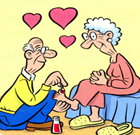
��Ŀ�� ��Դ�� �}�ͣ����x�}
�鿴�𰸺ͽ���>>
��Ŀ�� ��Դ�� �}�ͣ���x����
�鿴�𰸺ͽ���>>
��Ŀ�� ��Դ�� �}�ͣ���x����
�鿴�𰸺ͽ���>>
��Ŀ�� ��Դ�� �}�ͣ���x����
�鿴�𰸺ͽ���>>
��Ŀ�� ��Դ�� �}�ͣ���x����

�鿴�𰸺ͽ���>>
��Ŀ�� ��Դ�� �}�ͣ���x����

�鿴�𰸺ͽ���>>
��Ŀ�� ��Դ�� �}�ͣ���x����
�鿴�𰸺ͽ���>>
��Ŀ�� ��Դ�� �}�ͣ���x����
�鿴�𰸺ͽ���>>
��Ŀ�� ��Դ�� �}�ͣ���x����
�鿴�𰸺ͽ���>>
��Ŀ�� ��Դ�� �}�ͣ���x����

�鿴�𰸺ͽ���>>
�ٶ����� - ����(x��)���б� - ԇ�}�б�
����ʡ��(li��n)�W(w��ng)�`���Ͳ�����Ϣ�e��ƽ�_ | �W(w��ng)���к���Ϣ�e�^(q��) | ����p�_�e�^(q��) | ��vʷ̓�o���x�к���Ϣ�e�^(q��) | �����֙�(qu��n)�e�^(q��)
�`���Ͳ�����Ϣ�e���Ԓ��027-86699610 �e���]�䣺58377363@163.com